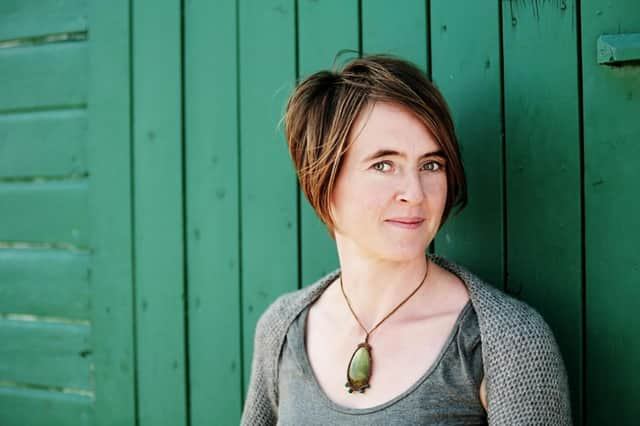Tradfest promises Shetland strings, blazing banjos and rebellious truth-telling


While spring heralds both welcome sunshine and an easing – to a degree – of Covid restrictions, live performance with audiences, as we once knew it, remains an uncertain if faintly discernible prospect. The internet ingenuity of musicians and events organisers, however, continues to stream quality performance hither and yon, and Edinburgh’s springtime Tradfest is no exception.
Tradfest’s ambitious ticketed online programme kicks off on 30 April with a vibrant celebration of northern fiddle music, Shetland Springs, presented in association with Shetland Folk Festival and bringing together some of the isles’ finest exponents, curated by Catriona Macdonald and co-starring fellow Shetlanders Margaret Robertson, Chris Stout and Ross Couper.
Advertisement
Hide AdAdvertisement
Hide AdThe festival’s main programme, broadcast daily until 10 May, has been produced by its established collaborators Douglas Robertson and Jane-Ann Purdy of Soundhouse. Performers include Edinburgh-based Romanian singer-songwriter Lizabett Russo, banjo virtuoso Aaron Jonah Lewis, piper Malin Lewis and some of Scottish folk’s best known bands – Shooglenifty, Moishe’s Bagel, Old Blind Dogs and the Kinnaris Quintet.
The festival also sees the Scottish Storytelling Centre host the launch of Scotland Online: A Directory of Musicians, a comprehensive listing of musicians working and recording in Scotland. Presented by the Traditional Music Forum and TRACS (Traditional Arts Culture Scotland), the event features pre-recorded performances by harpist Rachel Hair and multi-instrumentalist Ron Jappy, Gaelic singer Maeve Mackinnon with Ali Hutton and Luc McNally and flute-fiddle duo David Foley and Jack Smedley with guitarist Jenn Butterworth.
As its finale, Tradfest adjourns to a venerable venue indeed for its inaugural Rebellious Truth lecture, given by singer-songwriter Karine Polwart in conjunction with Edinburgh University’s Department of Celtic and Scottish Studies, whose School of Scottish Studies and its national treasure of an archive this year celebrates its 70th anniversary. The lecture, as well as performances by Polwart and Mike Vass, the School’s current traditional artist-in-residence, will live-stream from Scotland’s first purpose-built concert Hall, St Cecilia’s, built by Edinburgh Music Society in 1762.
It seems a fitting conjunction of old and new for Polwart’s talk, in which she describes folk song as “a wee window into the experiences of those who lived before us, the challenges they faced and the fights they fought in their own times that yield us many of the rights and privileges we enjoy now.” Equally immersed in current affairs, however, she examines the still all too present blights of misogyny and sexual violence, as well as women who rebelled against norms, as recounted in traditional song.
Another ancient Edinburgh landmark taking to the wired world in spectacular fashion is St Giles Cathedral, which becomes the venue for a collaboration between the Scottish National Jazz Orchestra and the Edinburgh-based Russian multimedia artist Maria Rud, renowned for her heady combination of live painting, music, architecture and state-of-the-art technology through her AniMotion shows in such iconic spaces as the National Museum of Scotland and Edinburgh University Old College Quad.
Running online from 12-15 May, her collaboration with the SNJO, titled Where Rivers Meet, promises to be the orchestra’s “most ambitious, multi-dimensional event to date,” according to its director, saxophonist Tommy Smith.
As Rud paints, her vivid, ever-evolving images will be projected directly on to the unique “canvas” provided by the breathtaking Gothic interior of the High Kirk, while the SNJO, featuring Smith and fellow-saxophonists Paul Towndrow, Konrad Wiszniewski and Martin Kershaw, evoke the simmering creative spirit of the Sixties free jazz movement, playing music by such notable exponents as Albert Ayler, Ornette Coleman, Dewy Redman and Anthony Braxton.
Advertisement
Hide AdAdvertisement
Hide AdFor Rud, the essentially improvisatory nature of the music will inspire new imagery. For Smith, the performance will be “all about expression, the deepest emotion of our inner voice. The soloists must bare their souls – that was the challenge and the achievement of much of the best of the free jazz of the 1960s and beyond. And that's what we're after here.”
For further information and ticketing see www.edinburghtradfest.com and www.livestream.snjo.co.uk
A message from the Editor
Thank you for reading this article. We're more reliant on your support than ever as the shift in consumer habits brought about by coronavirus impacts our advertisers.
If you haven't already, please consider supporting our trusted, fact-checked journalism by taking out a digital subscription at https://www.scotsman.com/subscriptions